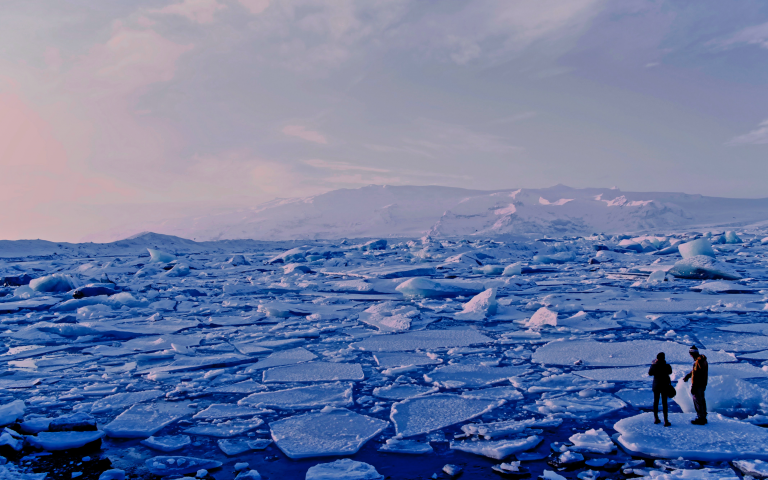IPCC report released urging government to take climate change seriously
11 August 2021
The UN’s Intergovernmental Panel on Climate Change (IPCC) release report this week involving contributions from UCL academics.

The report highlights that limiting warming to close to 1.5°C or 2°C will be impossible without immediate, rapid and large-scale action to reduce levels of carbon dioxide (CO2) and other greenhouse gas emissions. It also highlights the physical science behind climate change, highlights that the changes in the Earth’s climate have already been observed in every region of the globe and across the whole climate system, including the atmosphere, oceans, rivers and lakes, and land, many of which are unprecedented.
Published ahead of COP26, the UN Climate Change Conference being held in November in Glasgow, the report is the first of three volumes from IPCC Working Groups to be released over the next eight months, providing a collective view of the latest science on climate change as agreed by 195 member governments of the IPCC.
The report “Climate Change 2021: The Physical Science Basis” involved contributions from hundreds of scientists around the world, including three from UCL, who assessed evidence from over 14,000 scientific publications.
There is a clear consensus within the report that global warming intensifies precipitation, resulting in fewer but heavier rainfalls and snowfalls. The hydrological consequences include reduced soil moisture as well as an increased frequency and severity of floods and droughts.
These changes have vital repercussions for global food and water security. The report also provides evidence of potential ‘silver lining’ to this transformation in precipitation. Replenishment of groundwater, the world’s largest distributed store of freshwater, is often found to occur disproportionately from heavy rainfalls.
UCL Professor of Earth System Science Mark Maslin (UCL Geography) said:
This report is a scientific and political wake-up call for all governments of the world to take climate change seriously. It acts as a reminder of the urgency of the climate crisis. Governments must now work in solidarity, taking heed of this report and increasing their ambitions to ensure we can avoid the worst of climate change, adapt to its impacts, and protect our most vulnerable populations.
The science in this report must inform the firm pledges, commitments and binding agreements made at COP26 later this year, helping ensure we can halve global emissions by 2030 and hit net zero by 2050 to limit warming to 1.5˚C.”
Dr Chris Brierley (UCL Geography), a contributor to Chapter 3 on ‘Human Influence on the Climate System’, said:
Previous reports have clearly highlighted the urgency of the issue but since then, we’ve learnt even more about the science behind climate change. It’s now more important than ever that we adapt to the climatic changes we’re already experiencing and rapidly put new systems in place that mean we can stop burning fossil fuels, which are the key cause of this warming.”
PhD student Anni Zhao (UCL Geography) also contributed to Chapter 3, stating:
“Using the latest climate models together with updated paleo record and observations, we were able to update our assessment of human influence on the climate system since the last IPCC reports. We found that human influence is more clearly linked to changes in global sea level rise, ocean heat content and sub-surface ocean salinity, as well as changes in rainfall, snow cover and atmospheric circulation.”
Commenting on the findings of Chapter 8 on ‘Water Cycle Changes’, report contributor Professor Richard Taylor (UCL Geography) noted that:
This latest report provides new insight into the hydrological consequences of climate change.
Previously, it was thought that global warming amplified existing variations in precipitation with wet areas becoming wetter and dry areas becoming drier. This assumption has been found to be invalid so that the impact of climate change on where and when rain or snow will fall is even more uncertain than previous assessments had claimed.”
The reports aim to help policymakers understand what scientists know about climate change, provide the most up-to-date knowledge to address issues related to climate change, and form the scientific basis to inform climate change policies - as well as the UN Sustainable Development Goals. They are considered an important resource for society, domestic policymaking, and global climate negotiations, including November’s COP26.
Professor Michael Grubb – Professor of Energy & Climate Change and Research Director of Institute of Sustainable Resources, is part of working group 3.
Links
- The full report Climate Change 2021: The Physical Science Basis
- IPCC
- UCL Geography
- UCL Faculty of Social & Historial Sciences
- Professor Mark Maslin's academic profile
- Dr Chris Brierley's academic profile
- Professor Richard Taylor's academic profile
- Prof Chris Rapley interview
Photo credit
Photo by Roxanne Desgagnés on Unsplash
 Close
Close

